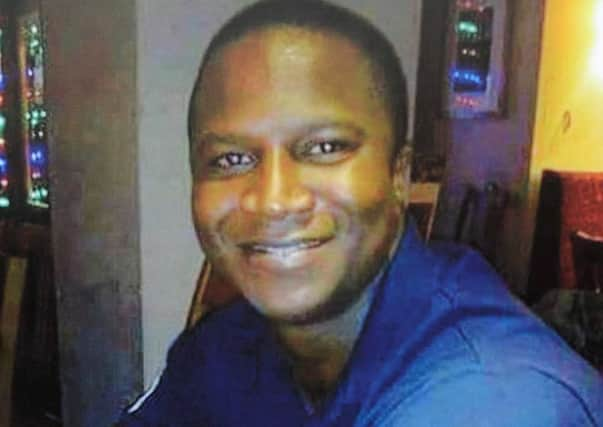Whatever happened to Sheku Bayoh, Police Scotland does not tolerate racism – Kenny MacAskill


No one should die in police custody, it’s fundamental to policing by consent. That’s something which not just citizens but police officers in Scotland pride themselves on. But sadly it occasionally happens, though thankfully it’s rare and most often due to underlying health issues and nothing to do with the use of force.
The Sheku Bayoh case though is different and therefore of far greater concern. It’s clear that it was the use of force that resulted in his death and the question’s whether that was necessary or appropriate. The anger and sorrow of the family is understandable given their loss. But equally, in this country, prosecutions are carried out by the Crown who act impartially and in the public interest.
Advertisement
Hide AdAdvertisement
Hide Ad

I wasn’t in office when this tragedy occurred but, as with others, am aware of it and maybe have a bit more insight and information than most. My criticism of the Crown in this case isn’t their decision not to prosecute any officers but the delay in coming to that judgement.
As is often said, justice delayed is justice denied and almost four-and-a-half years is far too long to wait. It has caused frustration and anguish not just for the family of Sheku Bayoh but for the officers and their families. Justice after all has to apply to everyone, including the officers involved. As well as uncertainty, it has resulted in rumours flying.
Officers will not be prosecuted
Of course, some of that delay was caused by the Crown reviewing, at the behest of the family it has to be said, their previous decision not to prosecute. Doing so was right but as with the years to get a decision in the first place, the months since then have felt like an eternity.
It’s sadly not just this case where decisions or actions have been dragged out. Getting it right is understandably more important than doing it quickly, but there has to be a balance and delay is becoming an issue in the system.
The Crown has concluded that there’s no basis to prosecute any officer or the service as an institution. Given, it has to be said that I only have anecdotal evidence, that appears correct to me and I can understand why the Crown came to that decision.
Whilst it means that no one or organisation is being charged with any crime, it doesn’t mean that all that was done was either right or appropriate. Blame may still fall to be apportioned and lessons, corporate or individual may need to be learned.
The normal procedure in Scotland for that is through a Fatal Accident Inquiry. There the court can consider actions of omission or commission and comment as it sees fit on any particular aspect or even on wider issues. They’re mandatory for deaths in custody and have been used in other cases. My experience is that the court can and will range far and wide, and most recently the findings into a death in custody of a prisoner at Saughton was uncomfortable reading for prison officers and the Scottish Prison Service.
Lessons to be learned
In Sheku Bayoh’s case, it’s felt needed to institute a public inquiry in addition. That’s because it’s viewed that there are issues which might be beyond the scope of an FAI, although, as I say, my experience is that they range widely and can call for further investigation if felt required. There’s now the danger of investigations clashing or overlapping, never mind the difficulties of the terms of reference and who is to preside over the public inquiry. However, it’s been felt necessary to consider whether race was a factor. Now, I’ve no doubt there are racist police officers in Scotland and, of course, there shouldn’t be and steps are taken to avoid them entering in the first place and to root them out if they’ve sneaked in. But that won’t always be successful and there’ll be a few, as in every walk of life. They’re not tolerated by senior officers, condoned by colleagues or defended by the Police Federation.
Advertisement
Hide AdAdvertisement
Hide AdI write that as someone who has not just served as Justice Secretary but started their legal career in a firm where one of the main clients was the Strathclyde Police Federation. I’ve experienced officers involved in all aspects of criminality up to the most serious of charges.
Actions and culture have moved on immeasurably since then and the service can be proud of that.
There’ll be lessons to be learned for policing and in restraint. But, the findings made may also be uncomfortable for the victim’s family. On race there’ll also be lessons learned.
But policing in Scotland isn’t the same as in Ferguson, Missouri, or even South London and those who imply that it is do a good service a great injustice.
